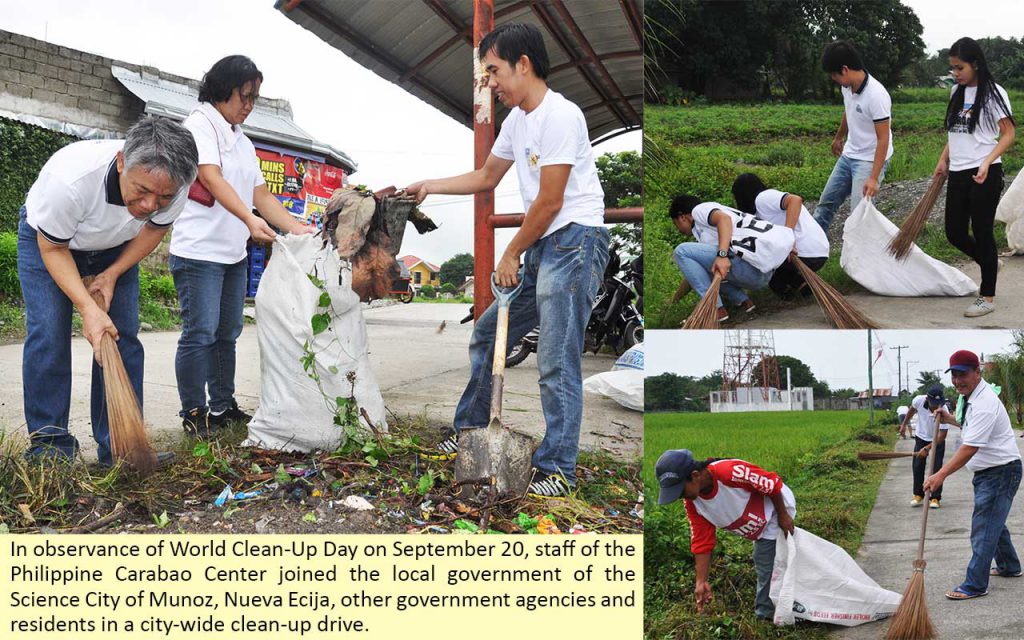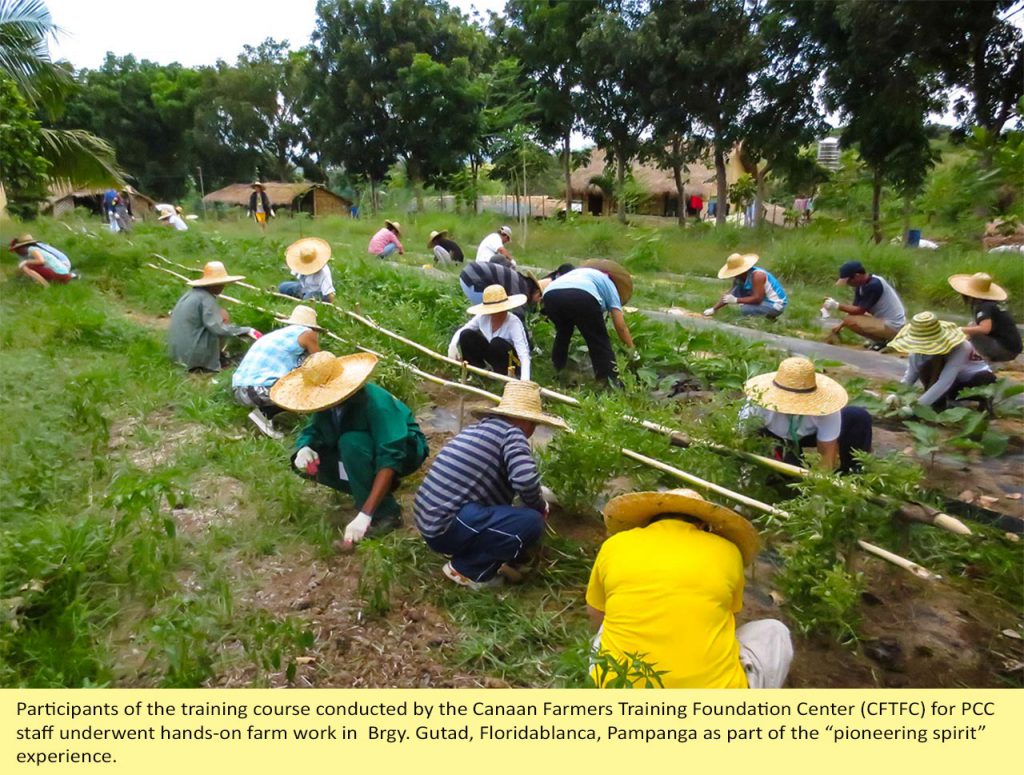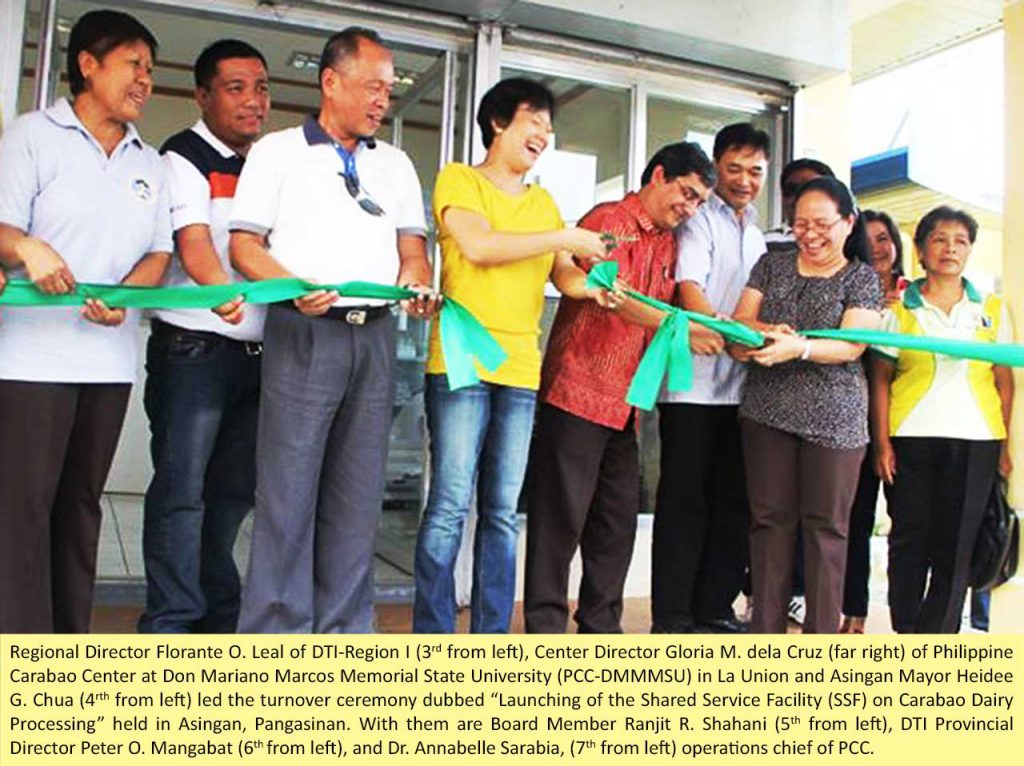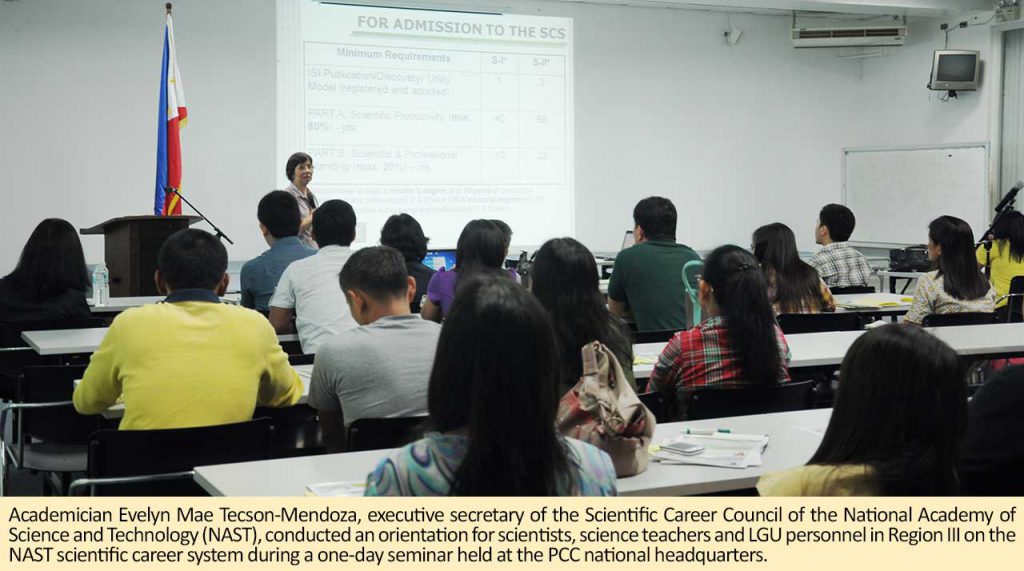A total of 317 staff of the Philippine Carabao Center (PCC) have completed a training course designed to uplift the “pioneering spirit” of employees to improve their work performance.
Conducted in eight batches from January to September this year, the mind-setting training was organized by PCC’s human resource development unit (HRDU) through Conrado Penuliar, human resource development officer, “to equip employees with positive attitude and better perspective in life.”
The HRDU coordinated with the Canaan Farmers Training Foundation Center (CFTFC), Inc. for the conduct of the said activity, which also offered the participants with core subject matters to attain the training objective.”
Venues for the training course were in different places. The PCC staff based in Luzon attended the training in Brgy. Gutad, Floridablanca, Pampanga, where the CFTFC headquarters and the training center are located. Those from Visayas and Mindanao attended the trainings in Panglao, Bohol and Central Mindanao University in Musuan, Bukidnon, respectively.
CFTFC president Kwan Soo Lee and CFTFC assistant director Neribeth Ignacio served as main resource persons. Their lectures and subsequent discussions focused on the Canaan pioneering history and spirit, strategies, living constitution, basic economy, community development and life towards Canaan.
Aside from group discussions and practical exercises, actual field work in a farm setting was undertaken. Sharing of experiences was also included in the training course. All told, the training essence was to let participants experience “real ways of living”, particularly to promote spirit of cooperation “to experience life and transformation”.
“If anyone has no transformation of mind, he cannot change his behavior, because behavior is controlled by the mind. If transformed, he can see himself better and is able to correct his old or unproductive mindset. Thus, he can see the world from a better perspective and be able to do things to help change the world,” Lee stressed in his opening messages for all the training batches. “Significant transformation requires discipline, training, and practice,” he added.
In the aftermath of the training, Guillerma Abay-abay, agriculturist II, one of the participants from the Visayas region, was quoted as saying: “After the training, ang laki ng impact niya sa amin at sa buhay ko. Ngayon we implemented a physical fitness hour o bayanihan every week to apply the spirit of cooperativism sa aming office. Naging aware na din kami sa oras kaya nagkaroon na kami ng time management na dapat we have to work at least four hours bago kumain at nagkaroon na din ako ng time sa family ko. Hindi na puro work lang… (The training created a big impact on us and in my personal life. Now, we implement a physical fitness hour every week to apply the spirit of cooperativism in our office. We also became time-conscious and learned about time management wherein we have to work at least four hours before we eat. Now, I also have quality time for my family. It’s not only work that matters).”
For his part, Mario Delizo, field technician based in the Nueva Ecija area, declared: “Tumaas lalo ang self-idealism ko. Nagkaroon ako ng pag-asa kasi dati parang nilimit ko na ang sarili ko sa ginagawa ko noon. Ngayon, nakakita ako ng hope to improve further my services lalo na kaming mga project-based employees (My self-idealism was uplifted, I became hopeful unlike before when I limited myself to the tasks at hand. I saw hope in improving further my services as a project-based personnel.”
On the other hand, according to Dennis Cotillas of the dairy processing unit of PCC at USF in Ubay, Bohol, he has learned not to waste food anymore, and that “I need to be physically fit for my work and for the service I give to the people.”




